An efficient and effective Secretariat to the Constitution-Making Body (CMB) is a critical support structure for any constitution-making process. CMBs have established different types of administrative/technical support bodies/organizations with varying degrees of success. This page outlines the what and how of establishing and running a CMB Secretariat, drawing on good practice and lessons learned from previous efforts.
Primer
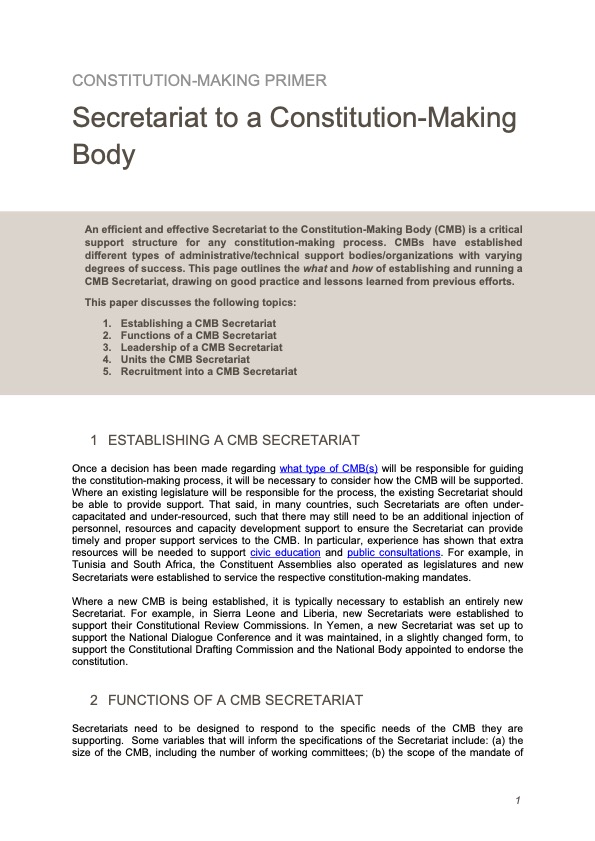
Sample Material: Secretariat Organization
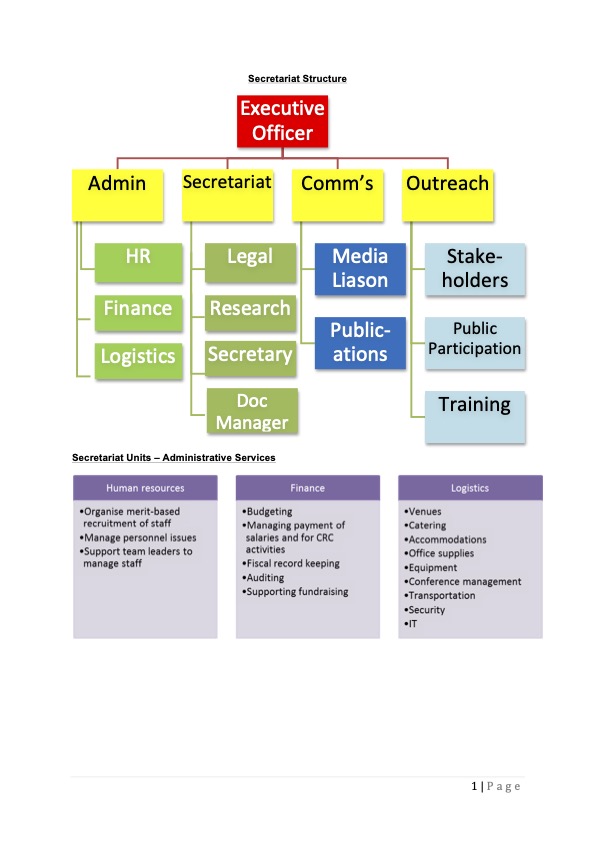
This is a sample organizational chart for the secretariat in the context of a constitution-making process.
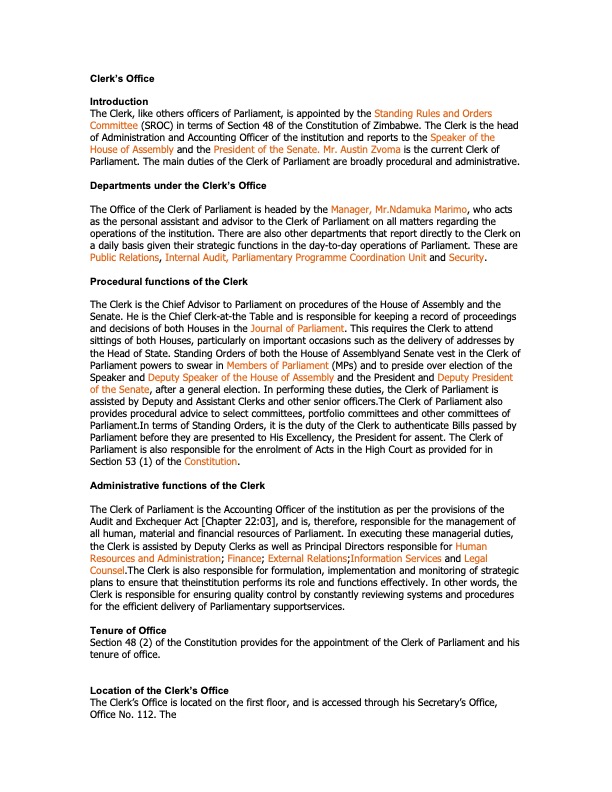
This document is the Terms of Reference for the Clerk, the Chief Advisor to the Parliament of Zimbabwe. It covers the procedural and administrative functions.
Terms of Reference: Head of Secretariat
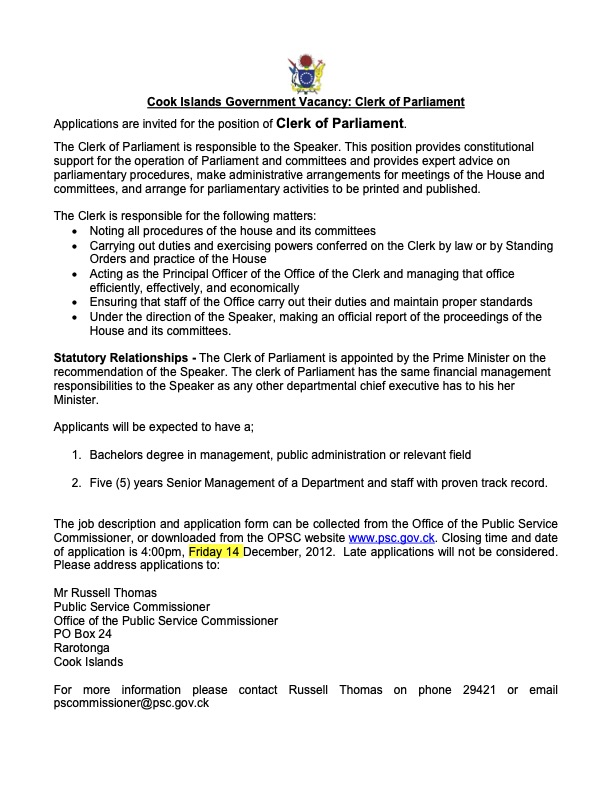
This document is the Terms of Reference of the Cleark of Parliament of the Cook Islands. The position provides constitutional support for the operation of Parliament and committees and provides expert advice on parliamentary procedures, makes administrative arrangements for meetings of the House and committees, and arrange for parliamentary activities to be printed and published.
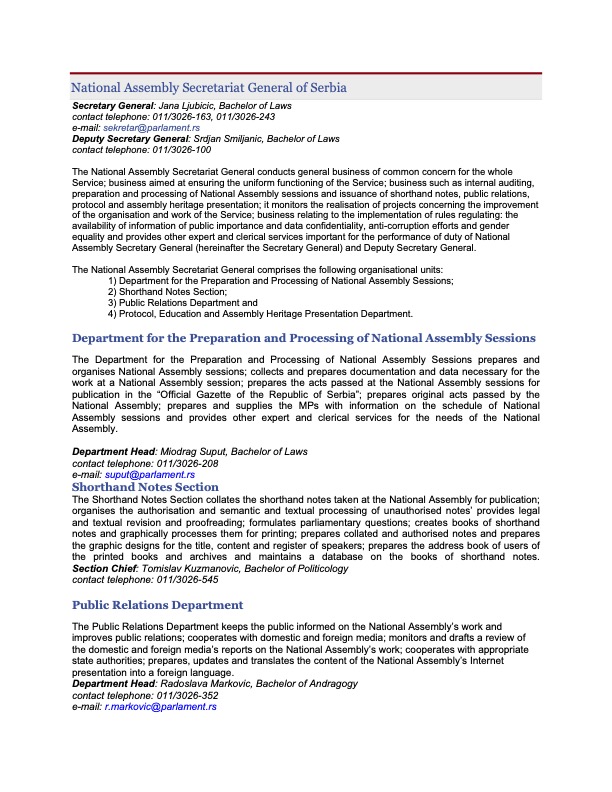
This document is the terms of reference of the National Assembly Secretariat General of Serbia. The National Assembly Secretariat General comprises the following organisational units: the Department for the Preparation and Processing of National Assembly Sessions; the Shorthand Notes Section; the Public Relations Department and the Protocol, Education and Assembly Heritage Presentation Department.

This document outlines the mandate and functions of the secretary of the Constitution of Kenya Review Commission (CKRC), as established in the Constitution of Kenya Review Act (2001), the Constitution of Kenya Review Regulations (2001) and the letter of the Permanent Secretary to the Treasury. The CKRC Secretary is an ex officio member of the Commission, Chief Executive of the Commission’s Secretariat, and Chief Financial Accounting Officer of and for the Commission.
Terms of Reference: Committee/Legal Support
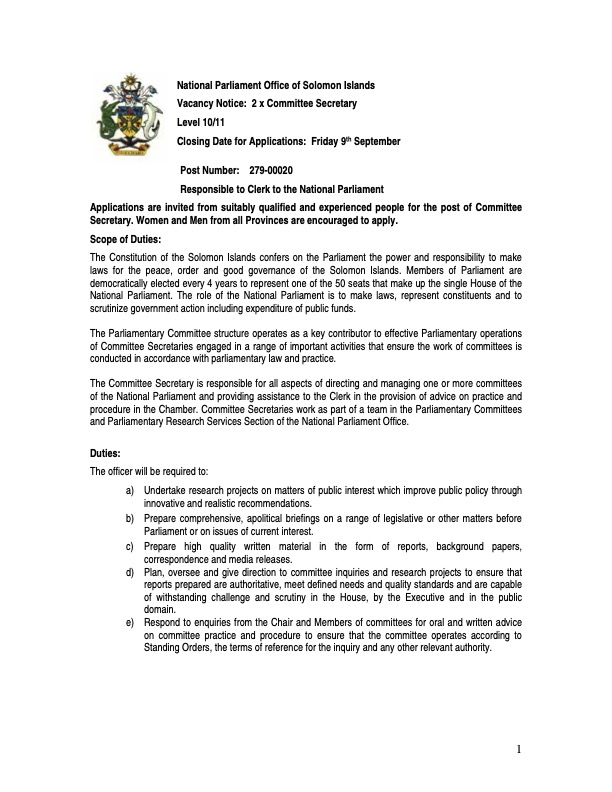
This document is the Terms of Referene for the Committee Secretary of the Parliamentary Committee of the Solomon Islands.
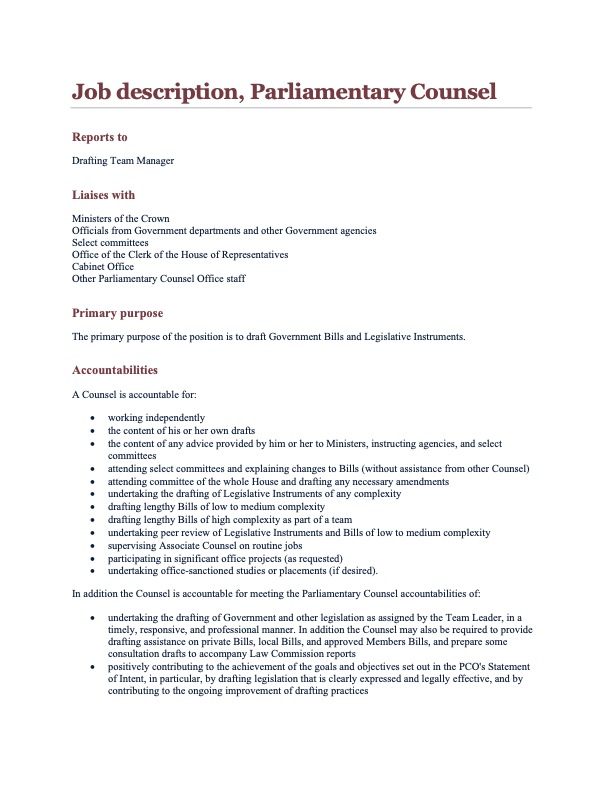
This document is the Terms of Reference of the Parliamentary Counsel of New Zealand. It covers the primary purpose, accountabilities, and peson specifications for the position.
Terms of Reference: Civic Education, Public Participation, and Communications
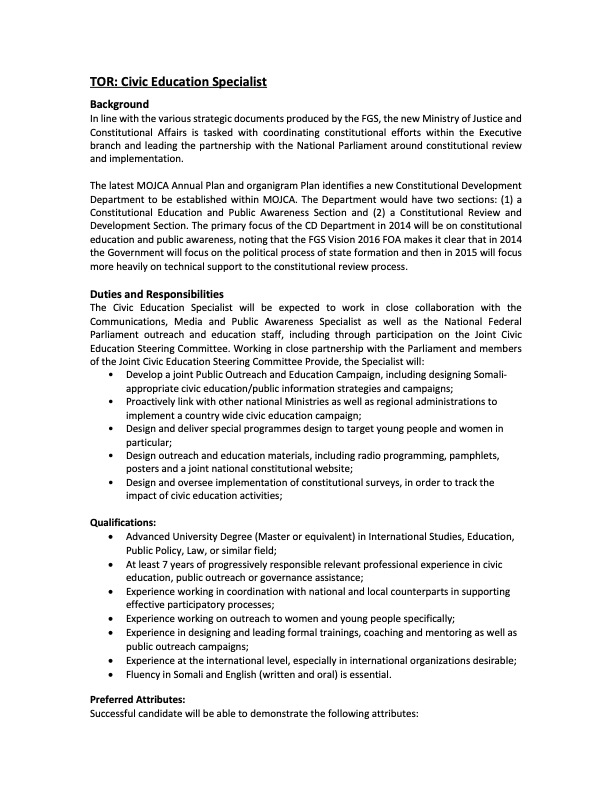
This document is the Terms of Reference for the Civic Education Specialist in the new Consitutional Development Department wihtin the Somali Ministry of Justice and Constitutional Affairs (MOJCA).
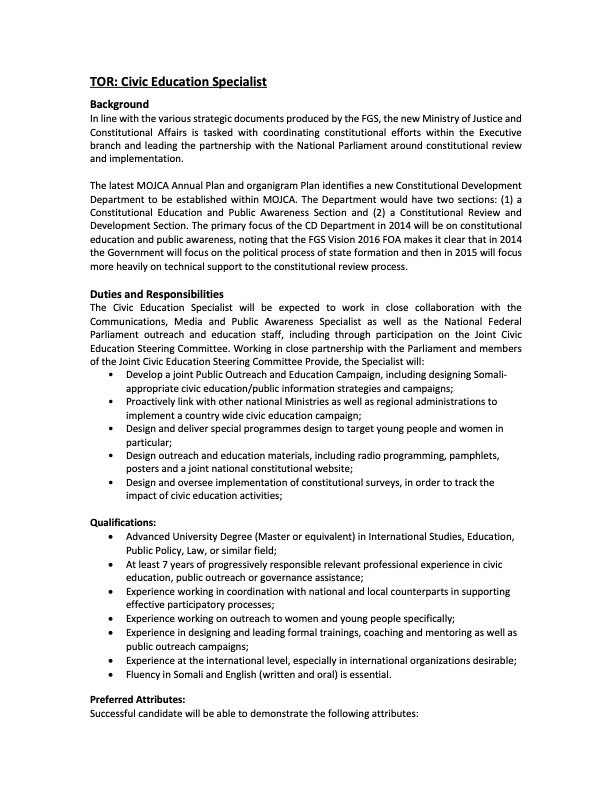
This document is the Terms of Reference of the Communications, Media and Public Awareness Specialist in the new Constitutional Development Departmenet in the Ministry of Justice and Constitutional Affairs of Somalia.
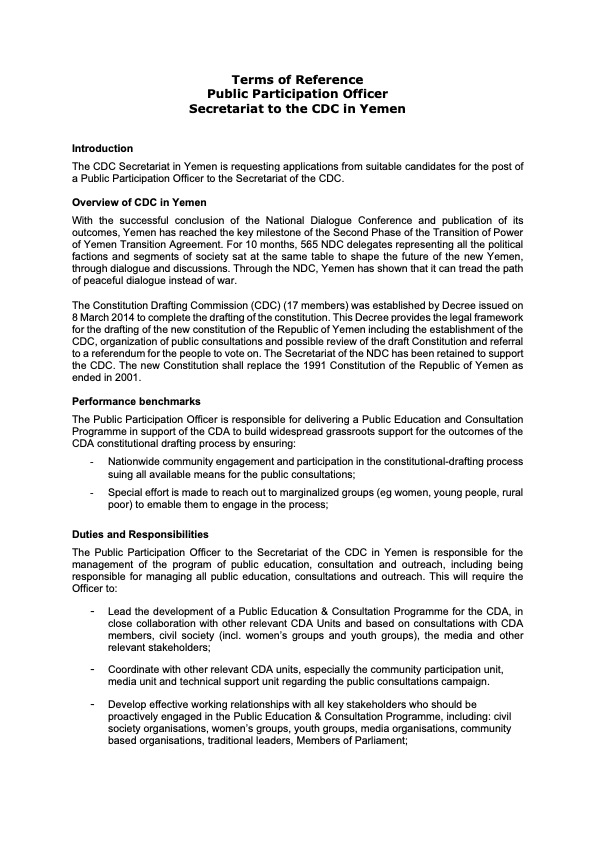
This document is the Terms of Reference for the position of Public Participation Officer in the Secretariat of the Constitutional Drafting Commission in Yemen. It covers performance benchmarks, duties and responsibilities, management lines and qualifications.
Further Reading
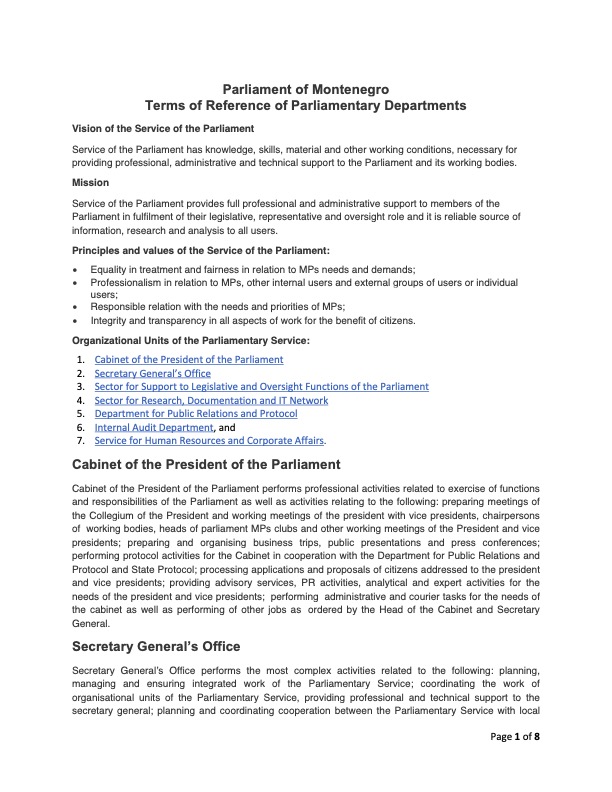
These are the Terms of Reference of Montenegro's Parliamentary Departments. It covers the Cabinet of the President of the Parliament, the Secretary General’s Office, the Sector for Support to Legislative and Oversight Functions of the Parliament, the Sector for Research, Documentation and IT Network, the Department for Public Relations and Protocol the Internal Audit Department, and the Service for Human Resources and Corporate Affairs.
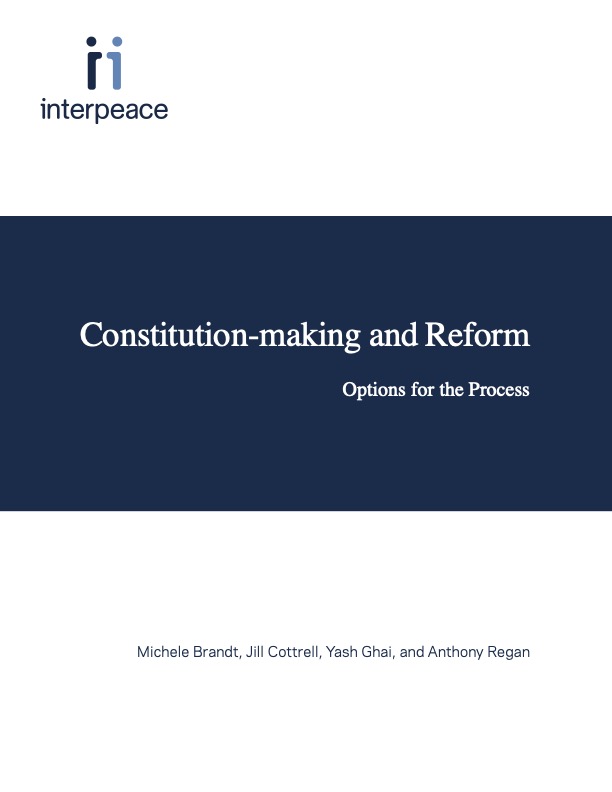
This is a comprehensive guide to constitution-making and reform. The book identifies the tasks that need to be carried out, the procedures that can be used, and who can do them. It is intended for a wide audience and to be a guide for anyone who is engaged in a constitution-making process, or who is interested in improving constitution-making practice. It includes a discussion on the following topics: Emerging guiding principles, Impacts of Adherence to Guiding Principles, The Role of a Constitution Issues of Process Key Components and Issues of the Constitution-Making Process Tasks and Responsibilities in Constitution-Making Assessing the Impact of Constitution-Making Who Does What in the Process Starting the Process Public Participation Administering and Managing the Process and its Resources The Agenda of Constitutional Issues and Generating Ideas on the Issues Debating and Deciding the Issues The Constitutional Text: Coherence and Drafting Adopting and Implementing the Constitution Institutions with Multiple Roles Institutions that Develop Proposals about which Final Decisions are Made Elsewhere Administrative Management Bodies Specialist or Technical Input Institutions Referendums and Plebiscites Civil society and the media and Guidance for the International Community.
